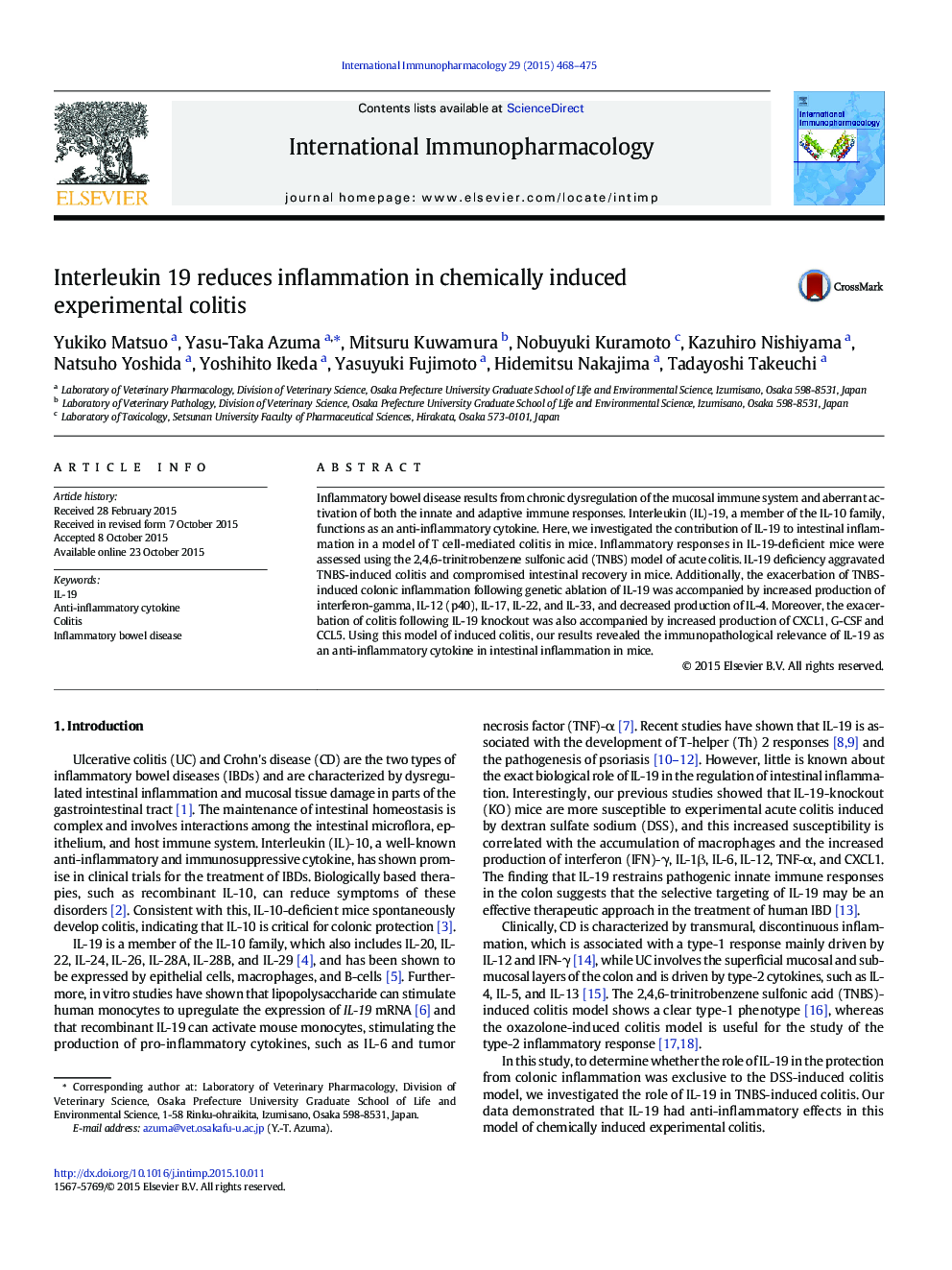| Article ID | Journal | Published Year | Pages | File Type |
|---|---|---|---|---|
| 5832170 | International Immunopharmacology | 2015 | 8 Pages |
â¢We use 2,4,6-trinitrobenzene sulfonic acid (TNBS) to induce colitis in miceâ¢IL-19 deficient mice (KO) experience aggravated TNBS-induced colitisâ¢Worse colitis in IL-19 KO was associated with increased pro-inflammatory cytokines including from lymph node lymphocytesâ¢We therefore report that IL-19 is an anti-inflammatory cytokine in the colon.
Inflammatory bowel disease results from chronic dysregulation of the mucosal immune system and aberrant activation of both the innate and adaptive immune responses. Interleukin (IL)-19, a member of the IL-10 family, functions as an anti-inflammatory cytokine. Here, we investigated the contribution of IL-19 to intestinal inflammation in a model of T cell-mediated colitis in mice. Inflammatory responses in IL-19-deficient mice were assessed using the 2,4,6-trinitrobenzene sulfonic acid (TNBS) model of acute colitis. IL-19 deficiency aggravated TNBS-induced colitis and compromised intestinal recovery in mice. Additionally, the exacerbation of TNBS-induced colonic inflammation following genetic ablation of IL-19 was accompanied by increased production of interferon-gamma, IL-12 (p40), IL-17, IL-22, and IL-33, and decreased production of IL-4. Moreover, the exacerbation of colitis following IL-19 knockout was also accompanied by increased production of CXCL1, G-CSF and CCL5. Using this model of induced colitis, our results revealed the immunopathological relevance of IL-19 as an anti-inflammatory cytokine in intestinal inflammation in mice.
